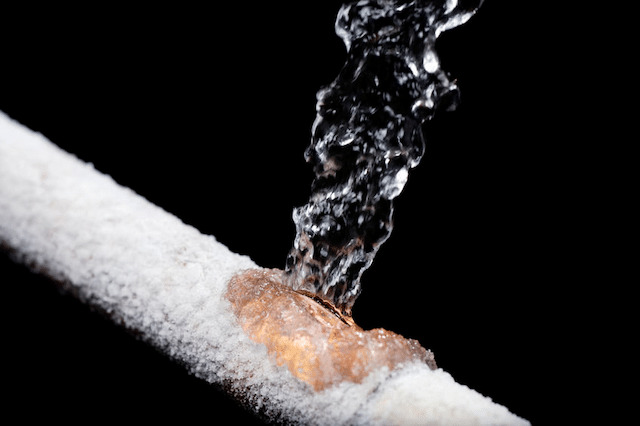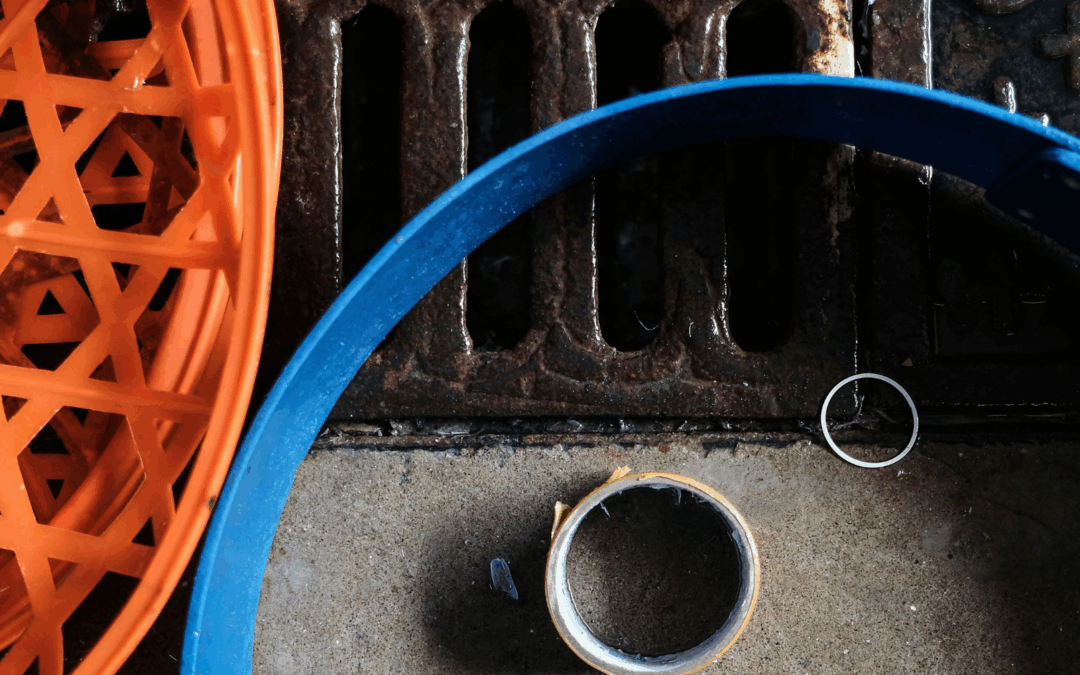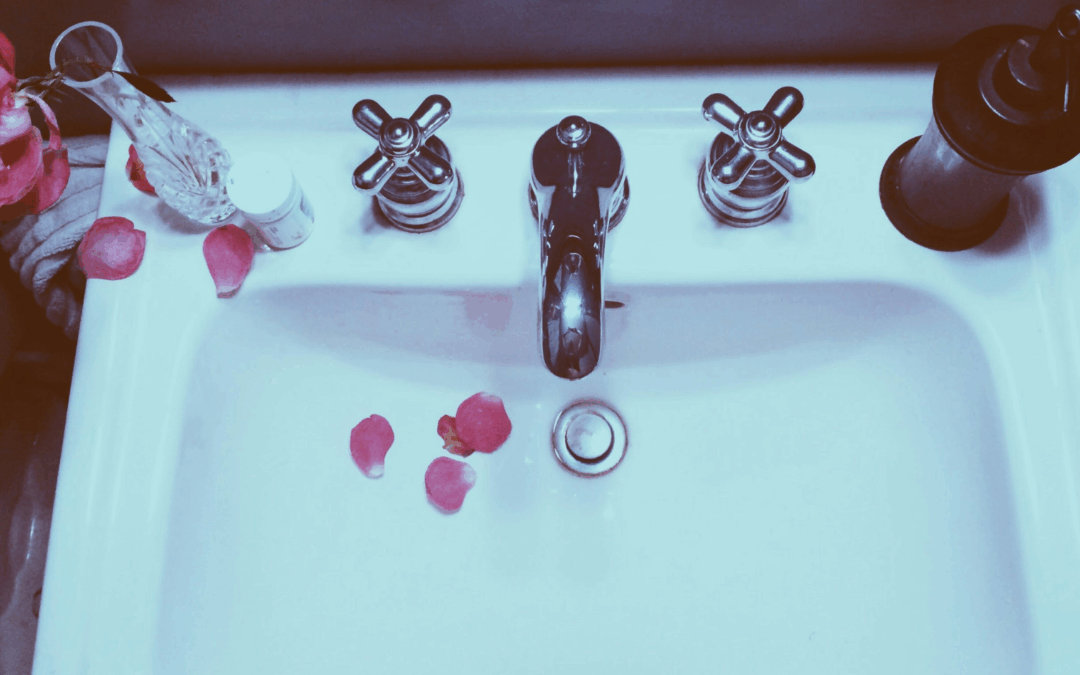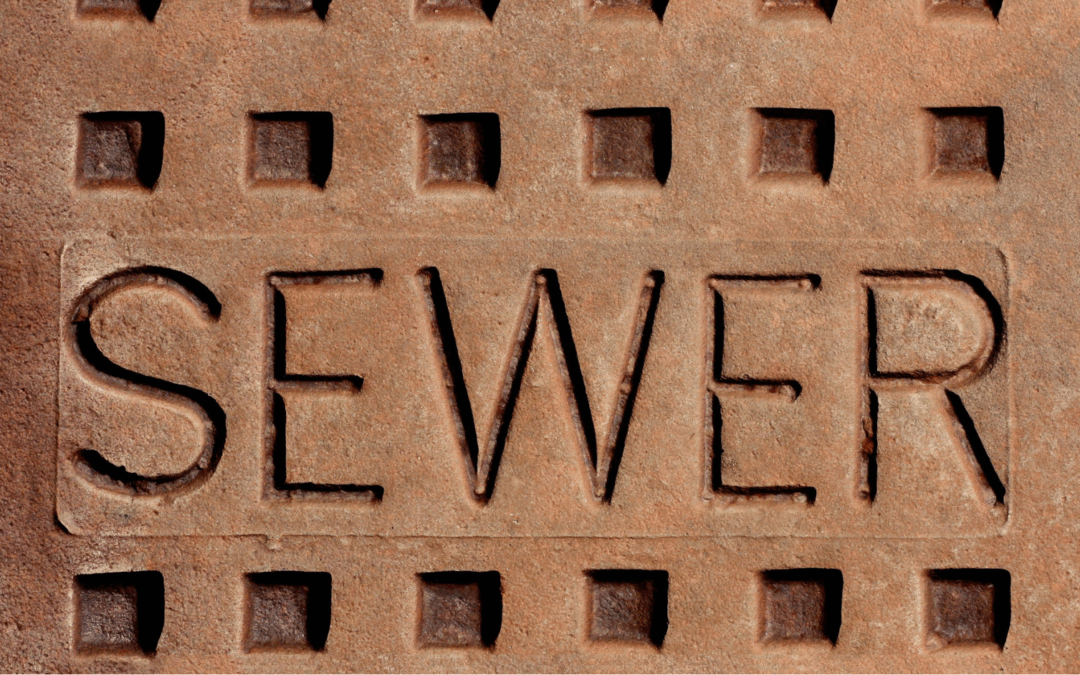Frozen pipes are a common issue for homeowners during the winter season. While there are many potential causes, understanding the basics can help you take steps to prevent it from happening in your home. In this blog post, we’ll discuss what causes plumbing pipes to freeze and provide tips on how you can protect your property. Stay warm this winter season – thanks for reading!
What Causes Frozen Pipes?
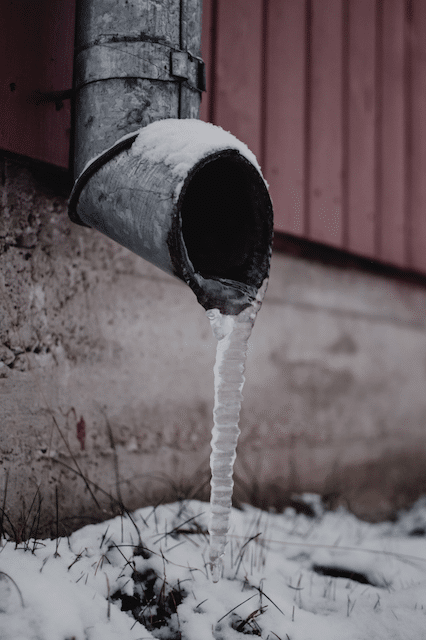
There are a few reasons why pipes may freeze during winter. One common reason is that the water in the pipes is not moving. This can happen if there is a blockage in the pipe or if the tap is turned off for an extended period of time.
Schedule Service Online
Get a free estimate so you know what you're signing up for
"*" indicates required fields
For Emergency Services Call: 410-255-9300
Another reason for freezing pipes is external temperature. If it’s extremely cold outside, the water in the pipes can freeze. Finally, if the home is not properly insulated, this can also lead to frozen pipes.
Although it’s commonly believed that only homes in cold climates are at risk for frozen pipes, this isn’t always the case. In fact, even a few nights of below-freezing weather can cause serious problems. No one wants to come home to burst pipes and extensive damage, so it’s important to be aware of this potential issue no matter where you live.
How To Find A Frozen Pipe In Your Home
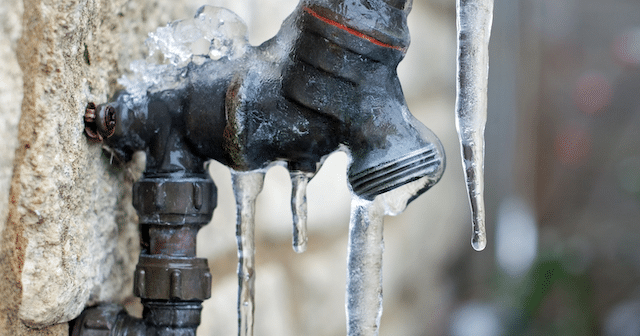
If you think you may have a frozen pipe, there are a few signs to look for. First, check all exposed pipes in your home to see if they’re cold to the touch. If they are, this is a good indication that they may be frozen. You can also check for leaks or drips, as these may be another sign that a pipe has frozen and burst.
If you’re still not sure, there’s one more way to check. Turn on all the faucets in your home and then go to the main-water shut-off valve. If the water pressure is low or nonexistent, this could be a sign that one of your pipes is frozen.
Another sign of frozen pipes is a water line that’s either bulging or has frost on it and water not running freely through your taps. If your toilet doesn’t refill after being flushed, that’s another sign indicating you probably have frozen pipes. The quicker you thaw them out, the more likely it is you can prevent pipe bursts and consequent water damage.
Steps To Fix Frozen Water Pipes
Here are steps to fix frozen water pipes:
1. Always shut off the water supply before taking any other actions. The frozen water may be slowing the escape of water through cracks. If you wait to turn off the water until after the ice melts, there could be a larger mess from overflowing waters.
2. Turn on all faucets and water outlets in your home. If no water flows out, the area around the water meter or well pump is likely frozen over.
3. If you have water running from one faucet and not another, there may be an isolated frozen pipe. In this case, turn on the valve of the pipe’s faucet and ensure the hot water is on and the cold water is off.
4. When the ice has melted, and water can again flow through the pipe, turn on all other faucets in your home so there is a slow water drip.
5. You can also use a heat lamp, space heater, or hairdryer on low to thaw out the pipes, but be careful of using a blow torch or boiling water as it might damage the pipe.
While you are in the process of thawing your frozen bathroom pipes, it is a wise idea to keep a bucket, mop, and towels close by in case there is a leak or spill from the melting ice.
Tips To Prevent Frozen Pipes
Frozen pipes are unpleasant, so it is best to prevent them before they happen. Here are some tips to do just that:
1. Seal Up Cracks: This is one of the most important things you can do to prevent your pipes from freezing. Check all the exterior walls of your home and seal up any cracks that you find. This will help to keep cold air from getting inside and causing your pipes to freeze.
2. Insulate Pipes In Unheated exterior walls: Another great way to prevent frozen pipes is to insulate them. This can be done with foam pipe insulation or electrical tape. Just make sure that all the exposed pipes in your home are properly covered.
3. Keep Your thermostat at a Consistent Temperature: If you’re going to be away from home for an extended period of time, it’s important to keep your thermostat at a consistent temperature. This will help to prevent your pipes from freezing.
4. Let Your Faucets Drip cold water: If the temperatures are particularly cold, you may want to let your faucets drip overnight. This will help to keep the water moving and prevent your pipes from freezing.
5. Disconnect Your Hoses: If you have any hoses attached to your outdoor faucets, make sure to disconnect them and store them indoors. This will help to prevent your outdoor pipes from freezing.
6. Cover Your Outdoor Pipes: If you have any exposed outdoor pipes, be sure to cover them with a tarp or blanket. This will help to keep them warm and prevent them from freezing.
7. Keep Your Garage Door Closed: If your garage is attached to your house, be sure to keep the door closed as much as possible. This will help to keep the cold air out and prevent your pipes from freezing.
8. Add a Layer of Protection: If you live in an area that is prone to freezing temperatures, you may want to add a layer of protection to your pipes. This can be done with heat tape or pipe insulation.
9. Regularly Inspect Your Pipes: Make sure to regularly inspect your pipes for any signs of damage or leaks. This will help you to catch any problems before they become too big.
10. Know Where Your Main Water Shut-Off Valve Is: In the event that your pipes do freeze, it’s important to know where your main water shut-off valve is. This will allow you to turn off the water and prevent any further damage quickly.
Taking these steps will help to prevent your pipes from freezing this winter.
Frequently Asked Questions
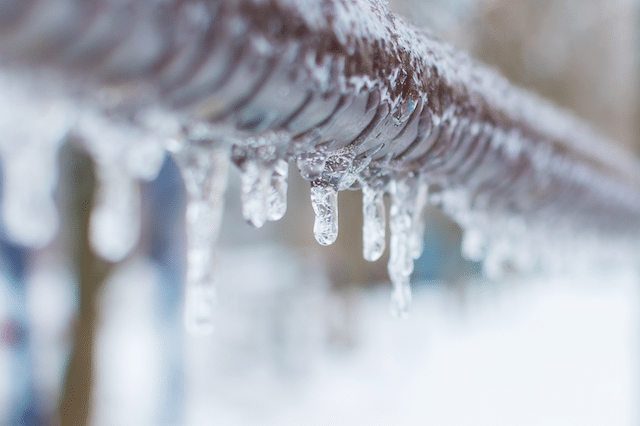
What Happens If A Frozen Pipe Bursts?
If a pipe bursts, it can cause serious damage to your home. Burst pipes can lead to flooding, which can ruin carpets, furniture, and other personal belongings. In addition, extensive water damage can cause mold growth, which can pose a serious health risk. If you have a burst pipe, it’s important to shut off the water immediately and contact a professional for repairs.
Are Some Pipes Susceptible To Freezing
All water pipes are susceptible to freezing, but some are more likely to experience problems than others. Pipes that are exposed to the cold air, such as those on an exterior wall or in an unheated crawlspace, are at a higher risk. In addition, pipes that carry only cold water are more likely to freeze than those that carry hot water. This is because hot water helps to keep the pipes warm and prevents the water from freezing.
At What Temperature do Pipes Freeze?
Pipes can freeze at temperatures as low as 20 degrees Fahrenheit. However, the risk of freezing is much higher when the temperature dips below 32 degrees. This is why it’s so important to take steps to prevent your pipes from freezing during periods of cold weather.
Do Pipes Always Burst When They Freeze?
Pipes don’t always burst when they freeze. In some cases, the water in the pipes may expand and cause the pipes to leak. However, if the water continues to freeze and thaw, this can cause the pipes to burst.
Do I Need To Winterize All Of My Plumbing?
If you live in an area that regularly experiences freezing temperatures, it’s a good idea to winterize all of your plumbing. This includes both exposed and buried pipes. However, if you live in an area with mild winters, you may only need to take steps to protect your exposed pipes.
What’s The Best Way To Thaw A Frozen Pipe?
If you have a frozen pipe, it’s important to thaw it out as quickly as possible. The best way to do this is to use a hair dryer. Start by pointing the hair dryer at the end of the pipe and moving it back and forth. You should also open any faucets that are connected to the frozen pipe. This will help to melt the ice and release any pressure that has built up in the pipe. Once the water starts flowing again, you can turn off the hair dryer and close the faucets.
Conclusion
Frozen pipes are a common problem during the winter months. However, by taking steps to prevent your pipes from freezing, you can avoid the hassle and expense of dealing with a burst pipe. If your pipes do freeze, thaw them out as soon as possible to prevent further damage.
Need A Plumber?
If you’re in need of a professional plumber, we can help! We offer a wide range of plumbing services, including pipe repair and replacement. Contact us today to schedule a consultation.

